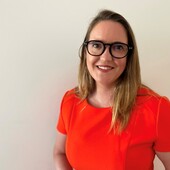
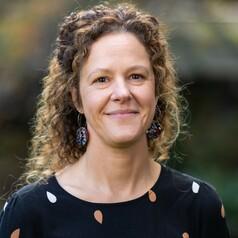
Sarah Annesley
Senior Postdoctoral Research Fellow in Cell and Molecular Biology, La Trobe University
I hold a Bachelor of Science with first class honours and a PhD in Microbiology from La Trobe University. Taking career interruptions into account I have just over 9 years of postdoctoral research experience. My experience and skills are in the general areas of cell and molecular biology. I am currently employed at La Trobe University as a senior research fellow.
Less ![]()


Sarah Aubrey
Lead Midwife for Education, University of South Wales
I am the Lead Midwife for Education and senior lecturer at the University of South Wales' Faculty of Life Sciences and Education. I am committed to training the next generation of midwives who will provide the highest standards of care to mothers and babies.
Less ![]()
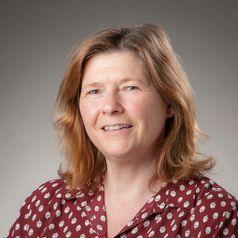
Sarah Bailey
Senior Lecturer, Neuropharmacology, University of Bath
My research focuses on understanding the molecular mechanisms underlying the response to stress and how this may lead to depression and anxiety. I serve on Council for the British Association for Psychopharmacology. I also sit on the Education and Training Committee and Animal Welfare and In Vivo Pharmacology Group of the British Pharmacological Society. At the University of Bath I am a Public Engagement Advocate and support innovative ways to increase engagement with research. I also work with Understanding Animal Research to promote the importance of being open about animal research in the development of medicines.
Less ![]()
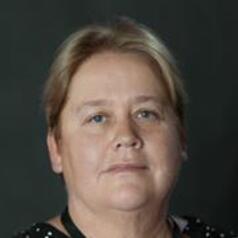
Sarah Baker
Associate Professor, Communication Studies, Auckland University of Technology
Sarah Baker is an Associate Professor in the School of Communication Studies at Auckland University of Technology. She is a member of the AUT Communication for Social Change research centre, a member of the AUT Journalism, Media, and Democracy Centre (JMAD), and the co-founder of the AUT Popular Culture Centre and the AUT Media Observatory Group. She is a Senior Fellow and a member of the AUT Academy, and a PhD Convenor. Her research interests include current affairs and political economy, often exploring the intersections between television and film in mediated popular culture through the lens of Gothic, Horror, Sexuality, and Gender.
Less ![]()
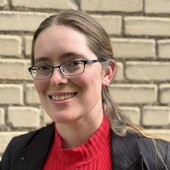
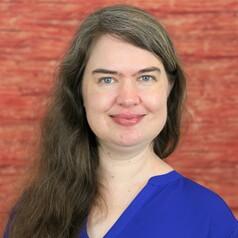
Sarah Bergen
Principal Researcher, Department of Medical Epidemiology and Biostatistics, Karolinska Institutet
I conduct quantitative genetics research predominantly focusing on schizophrenia and bipolar disorder as well as some projects on depression and eating disorders. My current studies aim to better understand the genetic and environmental contributions to disease risk, comorbidities associated with these disorders, and the observed variability within patient groups. I also have a keen interest in developing ways of subtyping patients to better understand the heterogeneous etiological pathways that give rise to these disorders. My strong foundation in neuroscience offers added biological context to the results from genetic research studies. Ultimately, I hope my research will contribute to improved treatment and prevention strategies for serious, chronic mental illnesses.
Less ![]()

Sarah Blank
Master's Student in Civil Engineering, Iowa State University
Sarah is an MS student in Civil Engineering at Iowa State and a student operator at the City of Ames Water Plant.
Less ![]()
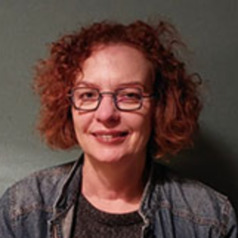
Sarah Charlton
Associate Professor, University of the Witwatersrand
Sarah Charlton is Associate Professor in the School of Architecture and Planning at the University of the Witwatersrand. Her experience in municipal government, the non-profit sector and consultancy included informal settlement upgrading and low-income housing policy and practice. Her research explores the interfaces between urban infrastructure and people’s practices, state development initiatives and urban governance. It has included work on urban peripheries and collaborative research in Ethiopia and Mozambique. She has a doctorate from the University of Sheffield and is a Research Associate of the Southern Centre for Inequality Studies. She serves on the boards of the journals African Studies, International Development Planning Review, and the International Journal on Homelessness.
Less ![]()
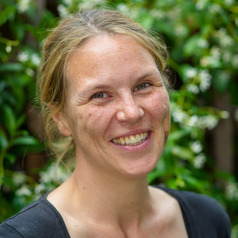
Sarah Chaytor
Director of Strategy and Policy, UCL Research, Innovation & Global Engagement, UCL
Sarah Chaytor is Director of Strategy & Policy for UCL Research, Innovation & Global Engagement.
She was a co-founder and is currently co-Chair of UPEN, the Universities Policy Engagement Network; leads the £10 million Capabilities in Academic-Policy Engagement project; and is Co-Principal Investigator and Strategic Engagement Director for the International Public Policy Observatory. She is also a Co-Director of the Research on Research Institute.
Sarah established and oversees UCL’s flagship academic-policy engagement initiative, UCL Public Policy, to connect UCL research to public policymaking. She works closely with the Vice-Provost (Research, Innovation and Global Engagement) on the strategic management of UCL’s research and innovation agenda and the coordination of activities across the portfolio. She has a particular focus on external stakeholder engagement and research policy, as well as institutional strategic initiatives.
Less ![]()
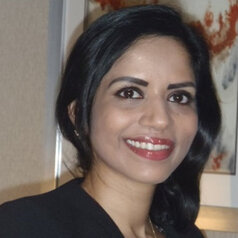
Sarah Chellappa
Associate Professor, Cognitive and Affective Neuroscience, University of Southampton
Sarah L. Chellappa, MD, MPH, PhD, is an Associate Professor at the University of Southampton, UK. Dr. Chellappa´s work has shown that sleep and circadian rhythms affect mood, cognition and brain activity in a variety of human populations, including healthy young and older adults, shift workers, patients with depression, patients with ocular diseases, and in individuals with neurodevelopmental conditions. Their work combines multimodal neuroimaging approaches to assess how sleep and circadian rhythms affect brain activity that modulate mood and cognition. Their work also includes sleep/circadian interventions to help improve mood, health and well-being using targeted light exposure and, more recently targeted nutritional interventions (meal timing) to improve cardiometabolic and mental health in humans.
Less ![]()
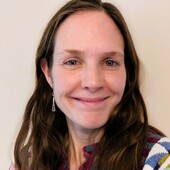
Sarah Clayton
PhD Candidate, Climate Change and Education, Department for Education, University of York
Less ![]()
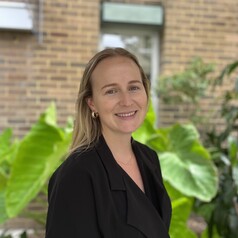
Sarah Clifford
Future Leader Fellow, Menzies School of Health Research
Sarah’s work focuses on the relationship between alcohol use and harms, and how policies can impact these outcomes. She has a background in health promotion. Her PhD examined the impact of the 2017-18 NT alcohol reforms – specifically the Banned Drinker Register, Minimum Unit Price, and Police Auxiliary Liquor Inspectors - on domestic, family, and sexual violence. Her fellowship focuses on the commercial determinants of alcohol use and harms in the NT.
Less ![]()

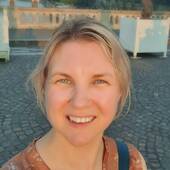
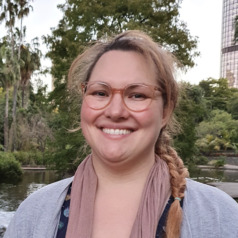
Sarah Cunningham
Doctoral Candidate in Public Health, Griffith University
Coming from a background in applied science I shifted towards public health and epidemiology before starting my PhD at Griffith in 2021. I'm interested in vulnerable populations, so I was excited to join a Griffith Climate Action project in targeting the health effects of extreme heat in older adults. Since joining, we have been successful in seeking support from Wellcome which has expanded the size of the team and scope of the project considerably.
Less ![]()
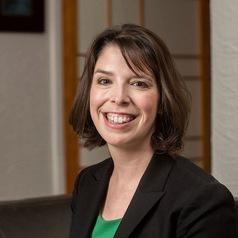
Sarah Damaske
Professor of Sociology and Labor and Employment Relations, Penn State
Sarah Damaske, Ph.D. is a Professor of Sociology and Labor and Employment Relations at the Pennsylvania State University. She is the award-winning author of three books, including The Tolls of Uncertainty: How Privilege and the Guilt Gap Shape Unemployment in America (Princeton University Press). Dr. Damaske is an expert in employment, work-family, and gender whose research is regularly cited in the media, including multiple stories in the New York Times, the Washington Post, and NPR.
Less ![]()
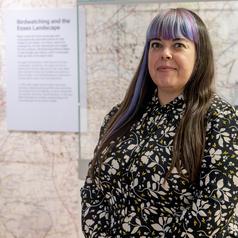
Sarah Demelo
Curator, ESCALA, Art & Special Collections, University of Essex
Dr Sarah Demelo is an art historian and curator based in Essex. She is the Curator of the Essex Collection of Art from Latin America (ESCALA), the University Art Collection, and the Library’s Special Collections at the University of Essex. Over the past twenty years, she has worked with numerous museums and collections in the UK and Canada, organising exhibitions on Latin American art and, more recently, modern and contemporary British art. She recently curated ‘Art of Dispersion: Hudinilson Jr and León Ferrari’ at Art Exchange, which explored the Brazilian xerography movement of the early 1980s and she featured in the BBC documentary ‘Banned! The Mary Whitehouse Story’ presenting on the Special Collection of the National Viewers’ and Listeners’ Association held at the University of Essex. Her most recent exhibition is 'Restless Brilliance: The Story of J.A. Baker and The Peregrine,' telling the story of Essex naturalist and writer J.A. Baker, co-curated with Chelmsford Museum.
Less ![]()
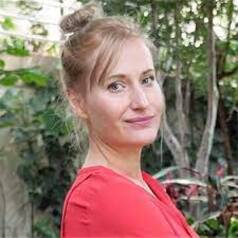
Sarah DeYoung
Disaster Researcher and Associate Professor of Sociology and Criminal Justice, University of Delaware
Sarah DeYoung is an associate professor at the University of Delaware in the Disaster Research Center and the Department of Sociology and Criminal Justice, and the Biden School at the University of Delaware. Her PhD is in applied social and community psychology. She studies challenges in disaster preparedness for people with companion animals, maternal and infant health in disasters, and evacuation decision-making. She is also an expert in quick response field work for disaster social science data gathering. She teaches courses at the University of Delaware on disaster preparedness, disasters and vulnerability, and sociology. Her co-authored book on animals in disasters (All Creatures Safe & Sound: the Social Landscape of Pets in Disasters) was awarded the 2022 Distinguished Book Award from the Animals and Society Section of the American Sociological Association.
Less ![]()
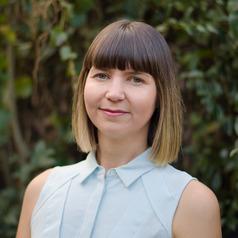
Sarah Dickie
PhD Candidate in Public Health Nutrition, Deakin University
Sarah Dickie is a Public Health Nutritionist currently completing a PhD in Food Policy at Deakin University's Institute for Physical Activity and Nutrition (IPAN). Her PhD analyses the science underpinning the use of nutrition classification schemes in policy actions. Sarah's research to date has focused on evaluating the implementation of Australia’s Health Star Rating front-of-pack labelling system and develping methods to incorporate the NOVA classification system into policy actions. She is a founding member of the advocacy group Healthy Food Systems Australia.
Less ![]()
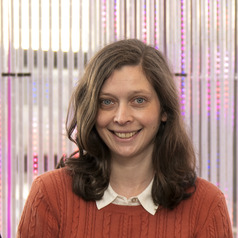
Sarah Diepstraten
Senior Research Officer, Blood Cells and Blood Cancer Division, Walter and Eliza Hall Institute
Sarah Diepstraten completed her PhD at La Trobe University in molecular genetics and developmental biology. She is now a post-doctoral scientist at the Walter and Eliza Hall Institute. Her research focuses on understanding how blood cancers become resistant to therapy and how this can be overcome. She develops genetic engineering approaches (CRISPR) to find genes involved in drug resistance. She has also taught in undergraduate science courses at La Trobe University and Melbourne University, and is passionate about science education.
Less ![]()
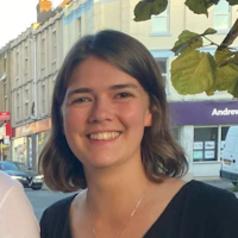
Sarah du Plessis
PhD Candidate, Cardiff University
During my BSc in Zoology at Cardiff University, on a placement year I conducted a research project studying the habitat use of Samango monkeys in relation to their food availability, first sparking an interest in a career in research. For my dissertation I used genetics to assess the success of translocations of the critically endangered Bojer's skinks among the islands surrounding Mauritius, which was published in Conservation Genetics shortly after I graduated in 2017. In 2018 I started a Masters by Research at the University of Bristol looking at plant plasticity and roots under environmental stress, of two altitude-specific ragwort species found on Mt Etna, Sicily. I submitted this thesis and successfully defended it May 2020.
In October 2019 I returned to Cardiff to begin a PhD with the Cardiff University Otter Project and Molecular Ecology groups, using the newly sequenced otter reference genome and samples from the otter archive to study the demographic history of populations within the UK. During the pandemic I begun learning the skills required for population genomics, and initiated the collborations from which I have developed our range-wide whole genome dataset of 63 samples.
During my PhD I have spent time working at the Smithsonian's National Zoo and Conservation Biology Institute with one of my supervisors, Dr Klaus-Peter Koepfli, thanks to a Welsh Government Researcher Mobility Grant. I have also spent three months working at the Centre of Evolutionary Hologenomics, at the GLOBE Institute in Copenhagen with Prof Tom Gilbert learning about ancient and historic DNA lab and bioinformatic methods, thanks to an EMBO Scientific Exchange Grant.
Less ![]()
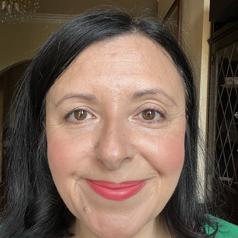
Sarah Earle
Professor of Social Science, School of Social Sciences, Nottingham Trent University
Professor Earle is a medical sociologist with a long-standing interest in reproductive and sexual health.
This began with the completion of her doctoral thesis in 1998, which focused on women’s embodiment in pregnancy, childbirth and early motherhood.
Her interest in women’s embodiment and reproductive agency has continued and she led empirical research projects focusing on pre-conception care for women with pre-existing type I and type II diabetes (funded by the NIHR), the contraceptive experiences of women with learning disabilities (funded by Open Society Foundations) and, a systematic review of the international literature on men’s role in infant feeding.
Sarah has published widely on the sociology of human reproduction, including two international edited collections Understanding Reproductive Loss: International Perspectives on Life, Death and Fertility (published by Routledge) and Gender, Identity & Reproduction: Social Perspectives (published by Palgrave).
Between 2000 and 2011, Sarah chaired the British Sociological Association’s Human Reproduction Study Group.
She is now the Social Sciences sub-editor for the international multi-disciplinary peer-reviewed journal Human Fertility, which is dedicated to furthering research and promoting good practice in the areas of human fertility and infertility.
Less ![]()
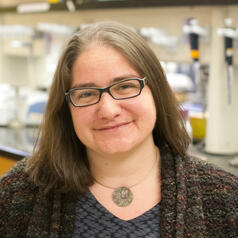
Sarah Eddy
Assistant Professor of Biological Sciences, Florida International University
Dr. Sarah L. Eddy is an Assistant Professor in the Department of Biological Sciences and is part of the STEM Transformation Institute, an educational research center, at Florida International University. They received their B.S. in Biological Sciences from Purdue University and a Ph.D. in Zoology at Oregon State University. Sarah completed a postdoctoral scholarship in biology education at the University of Washington. In addition to their scholarly publications, Sarah’s work has been featured in the New York Times, The Atlantic, Science, and Insight into Diversity.
Less ![]()

Sarah Edwards
Associate Lecturer and Plant Records Officer, University of Oxford
Sarah Edwards is an ethnobotanist and biodiversity informaticist, currently based at the University of Oxford, where she teaches ethnobiology and biological conservation. She is also Plant Records Officer for the University of Oxford Botanic Garden and Arboretum and an Honorary Research Associate at UCL School of Pharmacy, where she was awarded her PhD in 2006. Her career has included working for Kew Gardens developing collections management, nomenclatural and medicinal plant databases. She also provided data consultancies for national and international conservation, environmental and government health agencies, regulators, and NGOs that use plant names.
As an ethnobotanist Sarah’s research interests include understanding how culture mediates people’s interactions and interrelationships with plants. Sarah has investigated medicinal plant use in northeast Brazil and worked in collaboration with First Nations communities in northern Australia, developing digital tools to facilitate intergenerational transmission of traditional plant knowledge. Other research projects have included investigating edaphic and phytochemical factors in the aetiology of equine grass sickness and the scientific evidence base of herbal medicines. Sarah has also collaborated with artists and farmers in South Wales to re-evaluate relationships with ‘weed’ species and worked with the London Borough of Richmond Arts Service as part of the Cultural Reforesting Programme.
Sarah is a Fellow of the Linnean Society and a Board member of the British Herbal Medicine Association (BHMA). She is an author of several publications, including the books ‘Phytopharmacy: An Evidence-Based Guide to Herbal Medicinal Products’ (Wiley 2015) and ‘The Ethnobotanical’ (Kew Publishing/ Quercus Books 2023).
Less ![]()
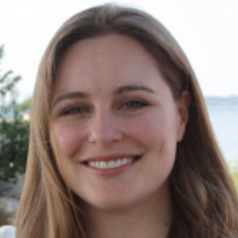
Sarah Florini
Associate Professor of Film and Media Studies, Arizona State University
Sarah Florini is an Associate Professor of Film and Media Studies in the Department of English and the Associate Director of the Lincoln Center for Applied Ethics at Arizona State University. She holds a doctorate in Communication and Culture from Indiana University. She researches the intersection of race and technology, and her work has appeared in New Media and Society, Critical Studies in Media Communication, Television and New Media, and Transformative Works and Cultures. Her book Beyond Hashtags: Racial Politics and Black Digital Networks is available through NYU Press.
Less ![]()
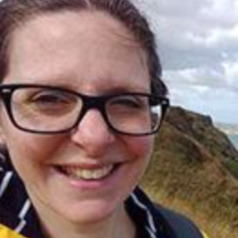
Sarah Fox
Research Fellow, Department of History, University of Birmingham
I am a social and cultural historian of eighteenth-century Britain specialising in the body, gender, social histories of law and medicine, and inter-personal relationships, and what they can tell us about neighbourhood, society, and nationality. My first book (published April 2022) explored women's experiences of childbirth in the eighteenth-century. My next book looks at the food served in the Georgian royal palaces in the late eighteenth, and early nineteenth centuries - a period when modern ideas of Britishness and British food were being formed.
Less ![]()
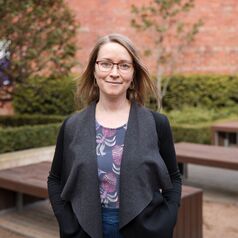
Sarah Gador-Whyte
Research Fellow in Biblical and Early Christian Studies, Australian Catholic University
Less ![]()
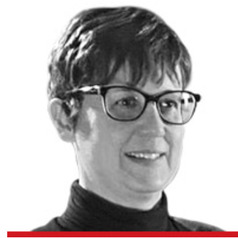
Sarah Gino
Associate professor, Università del Piemonte Orientale
Sarah Gino is an expert witness of criminalistic sciences and forensic medicine for different law courts in Italy since 1994.
Her scientific research is divided in two main areas. The first one is related to the field of forensic genetics and personal identification. In particular, she is carrying out population studies for forensic applications, analyses involving the identification of biological fluids and tissues in single samples and in mixtures by using immunochromatographic tests and mRNA analysis, and DNA extraction from unusual tissues. Furthermore, she is currently starting some collaborative studies on the application of the microbiome analysis in forensic fields, and the application of SNP panel for personal identification.
Another line of research is related with the role of the forensic medicine and the forensic genetics for the management of the victims of gender violence, such as sexual abuse and maltreatment.
RESEARCH CONTRIBUTIONS
http://tinyurl.com/SarahGINO-pubs
COMPLETE CV
https://upobook.uniupo.it/personale/cv/1718/1/Cv.GINO.Sarah.Eng.pdf
Less ![]()
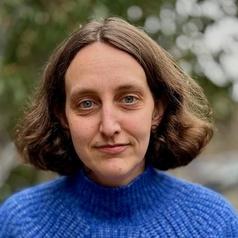
Sarah Golightley
Lecturer, Social Work, University of Strathclyde
My research, teaching, and social work practice have focused on supporting people who have experienced violence. I am passionate about uplifting the perspectives of service users/survivors. I am especially interested in Disability Studies, Mad Studies, and feminist research methods. My current research focus is on institutional violence and the pathologisation of youth in the USA 'troubled teen industry'. For my PhD, I conducted in-depth interviews and surveys on the experiences of former therapeutic boarding school students. Prior to moving into academia, I was a social worker who specialised in supporting LGBTQ+ victims/survivors of domestic abuse and LGBTQ+ homeless youth.
Less ![]()
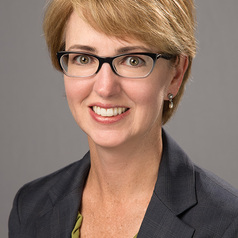
Sarah Goodrum
Senior Research Associate, Center for the Study and Prevention of Violence, University of Colorado Boulder
Sarah Goodrum is a Senior Research Associate in Violence Prevention with the Center for the Study and Prevention of Violence at the University of Colorado Boulder. Formerly, she served as an A.M. and Jo Winchester Distinguished Professor and Department Chair in Criminology and Criminal Justice at the University of Northern Colorado and as Associate Professor and Department Chair in Anthropology and Sociology at Centre College. Dr. Goodrum’s research focuses on violence prevention, homicide victimization, domestic violence, and the criminal justice system. Her co-authored Report on the Arapahoe High School Shooting, funded by The Denver Foundation, examined the lessons learned on violence prevention in schools. These lessons have been used to improve the violence prevention strategies for threat assessment, information sharing, and leadership in school settings. Recently, Dr. Goodrum extended this work on violence prevention to co-author the Colorado School Safety Guide for the Colorado Attorney General’s Office and serve as co-PI on an evaluation of the training for the Colorado Threat Assessment and Management Protocol in partnership with the Colorado School Safety Resource Center. She is currently a PI and co-PI on several violence prevention projects funded by the U.S. Department of Justice’s Bureau of Justice Assistance, Department of Homeland Security, and Centers for Disease Control and Prevention.
Dr. Goodrum’s publications have appeared in the Journal of Threat Assessment and Management, Behavioral Sciences & the Law, Law & Social Inquiry, Sociology of Education, Symbolic Interaction, Sociological Spectrum, Sociological Focus, Criminal Justice Review, and International Journal of Social Research Methodology: Theory & Practice. Her book After Homicide: Victims’ Families in the Criminal Justice System chronicles the experiences of families of murder victims from death notification to the trial, is available through Lynne Rienner Publishers (2019).
Less ![]()
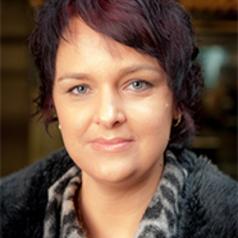
Sarah Gordon
Associate Professor in Psychology, University of Otago
My recent research has focused on two themes: reducing discrimination associated with mental illness among medical students and the Police, and promoting recovery-focused services and resources – in line with the recent major reorientation of service delivery models in mental health in New Zealand and internationally.
Less ![]()
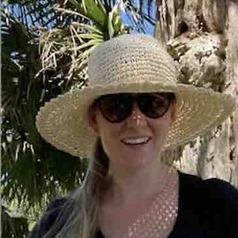
Sarah Graham1
Epidemiologist, Mater Research Institute, The University of Queensland
Sarah is an epidemiologist with special interests in maternal comorbidities and pregnancy complications, infectious diseases during pregnancy, maternal vaccination, equitable access to care and the use of linked population-level register-based data sources in perinatal research.
Less ![]()

Sarah Gray
Senior Research Officer, Murdoch Children's Research Institute
Dr Sarah Gray is a Child Psychologist and Researcher, currently working within the Centre for Community Child Health at the Murdoch Children's Research Institute. In her current role as Project Manager of the Changing Children's Chances project, Sarah works in collaboration with policy makers to identify potential policy-sensitive pathways in early childhood to reduce inequities in children’s health, development and wellbeing. This project applies robust causal analytic methods to powerful nationally-representative existing data sources (e.g. the Longitudinal Study of Australian Children, the Australian Early Development Census, and the Person Level Integrated Data Asset). Sarah is interested in building the capacity for large-scale administrative and cohort data to improve our understanding of policy impact and drive more precise policy decision making to reduce inequities for Australia's children.
Less ![]()
- Market Data





















